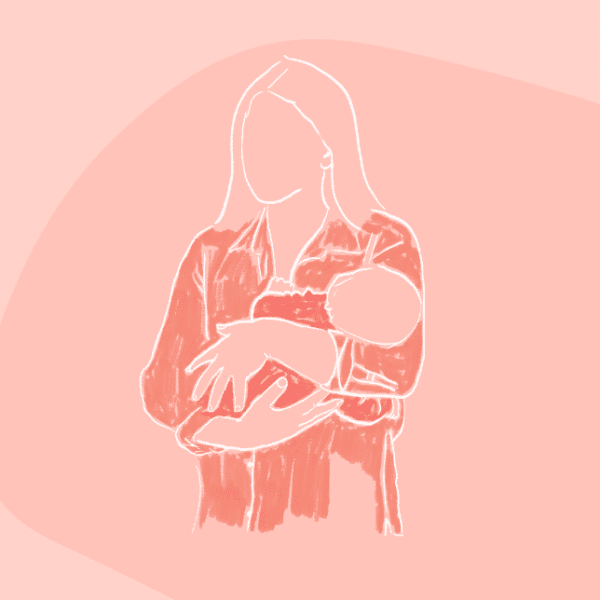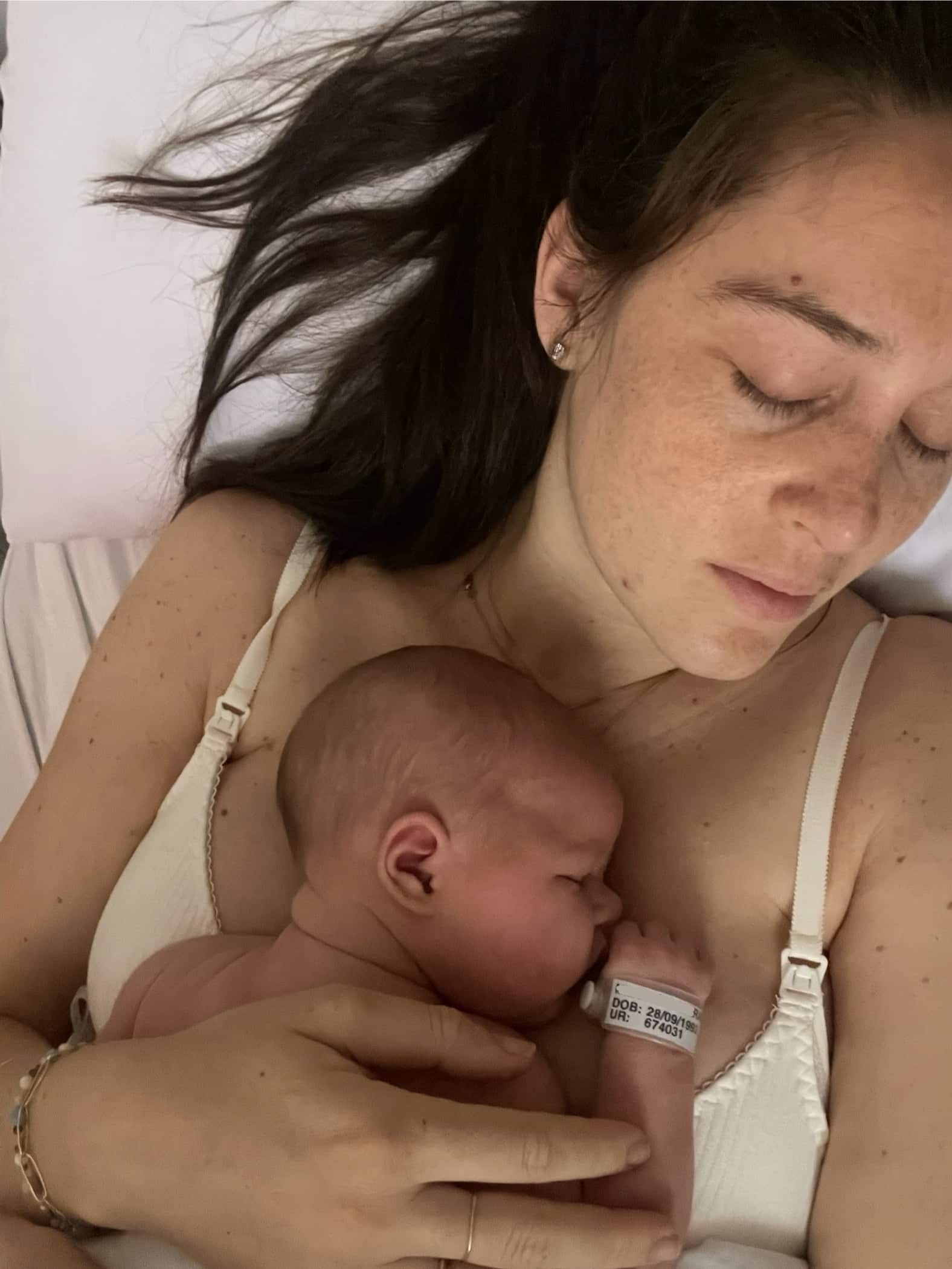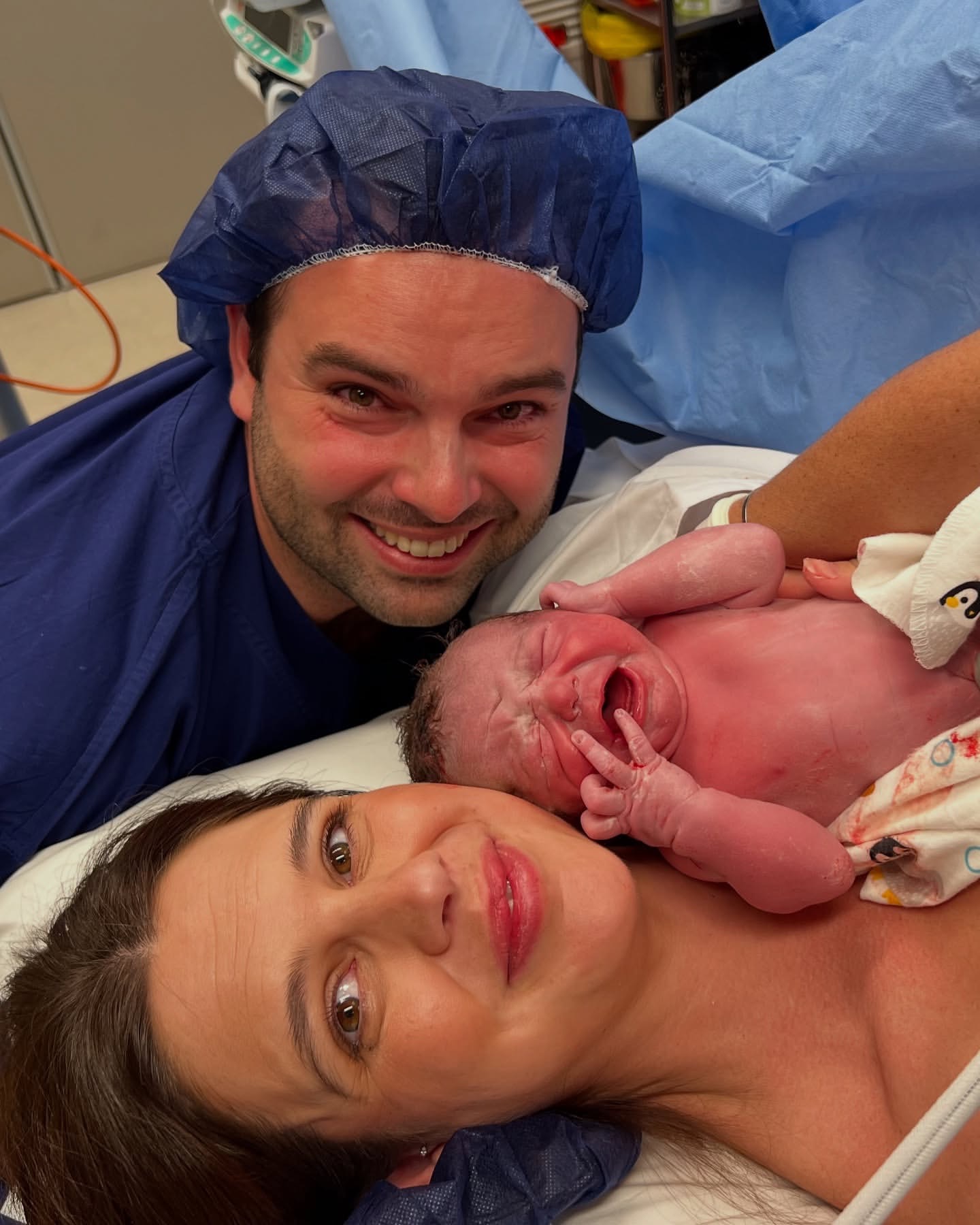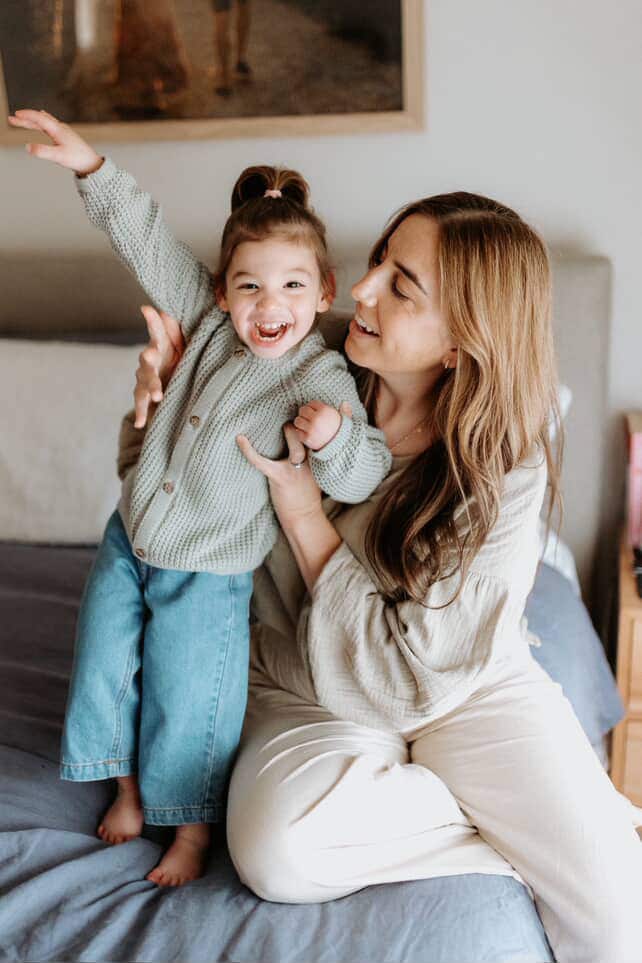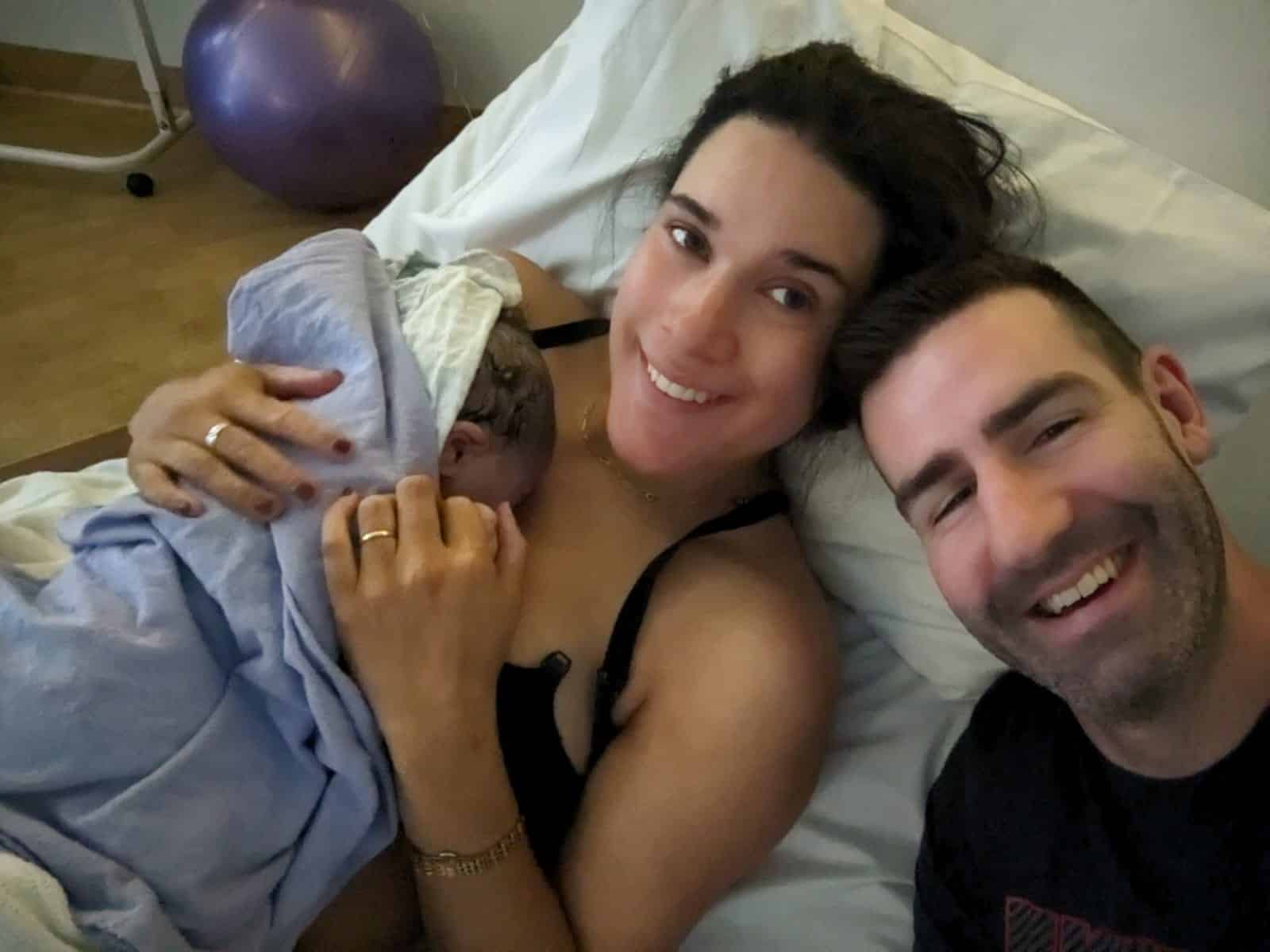Podcasts Eleanor Pendleton | Postpartum – intentional and supported postpartum
EPISODE 410
Eleanor Pendleton | Postpartum – intentional and supported postpartum
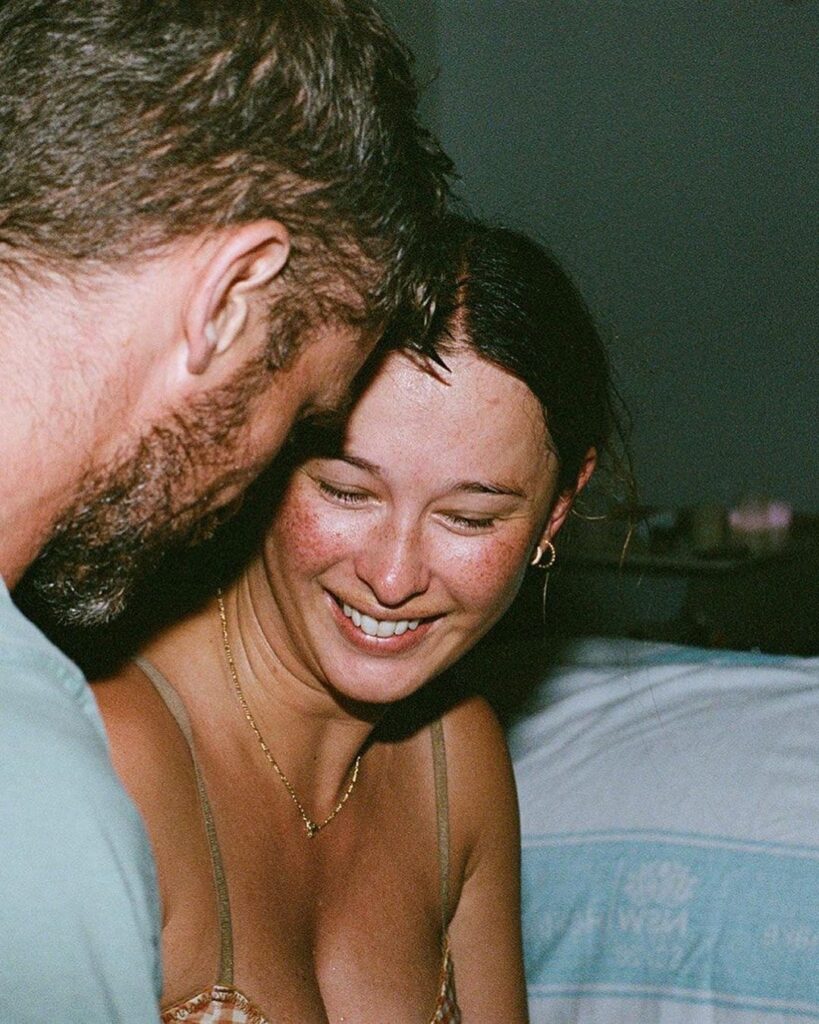
“I had two incredibly positive birth experiences; both very, very different. I chose a private obstetrician for my first and the public midwifery group practice program for my second and I enjoyed both experiences immensely.
“Banjo was born in early 2020; he was six weeks old when we went into that first initial lockdown and nothing could have prepared me as a new mother for what the isolation looked and felt like.
My mum lives interstate and she was there for Banjo’s birth and stayed with me for the first two weeks afterwards. She took on the role of ‘mothering the mother’ very seriously. Being a Filipino woman she has strong beliefs in Eastern medicine and I only ate what she made me; warming foods like congee and kitchari, warm teas, I didn’t eat or drink anything that was cold to aid my digestion. I didn’t do any washing for that two week period – and there was a lot – but she ensured that I had the time and space to lay in bed with my baby. She was an amazing support for me and she was delighted to be able to hold space for me in that way.
“Navigating breastfeeding for the first time was difficult. I was diagnosed with hyperlactation by an IBCLC which is essentially an oversupply of milk; it’s a blessing and a curse. I was grateful for the milk I had but it presented a lot of challenges and pain; plugged ducts, milk blebs (milk blisters) which is a clogged pore on your nipple and extremely painful. I was diagnosed with mastitis for the first time at three-weeks postpartum and I had so much milk that he couldn’t drain the breast; he was only taking the top off. I also had a forceful letdown because I was so full so he’d choke and cough every time he was fed and it presented so many different challenges that I never anticipated. I got ultrasound therapy to try and unclog the ducts and I just remember feeling like breastfeeding and its challenges was a minefield that I had no awareness of. Second time around I knew how to manage it so it’s been a smoother journey.
“In my first postpartum I saw a lactation consultant who really helped me, I saw physiotherapists for the ultrasound therapy and I saw the community nurse multiple times. In the three-and-a-half years since I had my firstborn the way we treat and manage mastitis has changed; I was told to use massage and heat whereas now we treat it as inflammation so I no longer massage, I use ice packs, I take an anti-inflammatory and it relieves it quite quickly.
“With my son I was engorged for four months; there was never any relief. Second time around my engorgement lasted two to three weeks. I didn’t feel self-conscious about feeding in public but it was messy; even today I have to make sure I have a cloth I can spill into when I have a letdown.
“I was really mindful to prepare for the first forty days; I tried to outsource as much as I could afford, and had the privilege to do that. I was going public this time so the money I would have spent on a private obstetrician, I chose to spend on my postpartum care. I invested in Ayurvedic postpartum meals which were nourishing and easily digestible which meant for the first month we didn’t have to cook. I also got a 24 hour first feed so when I went into labour, my husband texted the business and within three hours they had cooked a meal and it was delivered to the hospital and it was one of the best gifts I’ve ever given myself. I also hired a postpartum doula who I met in pregnancy and I knew as soon as I met her that she was the right person for me. Mothering the mother is the perfect description of a postpartum doula; she looked after me and I took a 5, 5, 5 approach: for the first five days I stayed in bed and didn’t get out except to go to the bathroom. The next five days I moved around the home, lots of rest and skin-to-skin and the for the final five days I went out into the garden and spent time there in the sun.
“In my first postpartum I definitely had postpartum blues in week three when the adrenaline subsided; I would stand in the shower and cry as a way to release the overwhelm but I also didn’t really know I was crying, I was definitely anxious and I definitely felt the drop of hormones. Second time around I didn’t have any postpartum blues whatsoever and I think that’s partly a result of the systems I put in place to protect my space.
“I wanted a period where I didn’t need to do anything but be with my babies. The first forty days this time round were blissful. Both experiences were positive; I learnt so much about myself. First time round there’s this Western ideology that you need to get out and be doing what you were doing in your old life. The Eastern approach is so different; the first forty days of slowness for a reason. I know that if I actually look after myself and prioritise my physical and mental health then I’ll show up as the best mother possible for my kids. I did that second time round; I didn’t feel guilt and I didn’t feel selfish and it made for a smooth transition to a family of four.
“I’ve been sitting with the thought of whether she’s our last and I don’t know; I felt from the moment that she was born that I have enough love for a third. But I don’t know, I know a newborn is very different to a toddler. If she is our last, I’m trying to soak up every single moment. Every time she wakes me is a joy. Having that level of perspective that she might be my last has completely shifted the way I’m moving through my postpartum. First time around; every wake I would dread, every afternoon I would feel anxious about what the night would bring. But now whenever she makes a sound I’m like: here I am, I’m here for you!
“I’m trying to savour it as much as I possibly can. The newborn period is so fleeting; it’s a very short window that goes by so fast. I’ve loved every single second of it; it’s been the best four months of my life.”
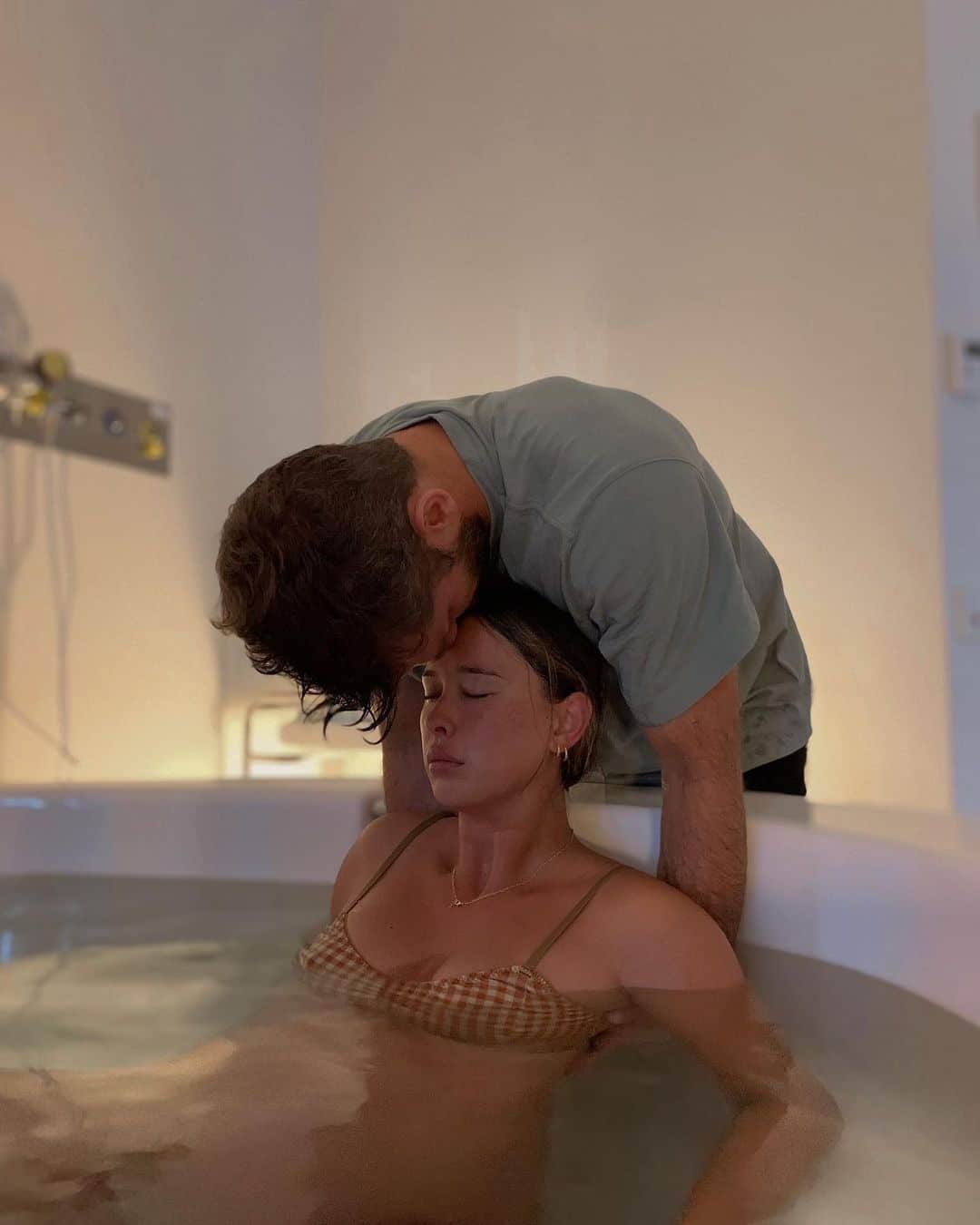

Topics Discussed
Breast Engorgement, Breastfeeding oversupply, Mastitis, planned postpartum, Postpartum care, Postpartum support
Categories
Related Products
-
Discovering Motherhood
12 reviews$119.00The 8-part audio program supporting your empowered and confident transition into motherhood.
Join the conversation
Sign up to get the latest updates, freebies, podcast releases straight into your inbox
@AustralianBirthStories
Follow along with us
@AustralianBirthStories
Follow along with us
@AustralianBirthStories
Follow along with us
@AustralianBirthStories
Follow along with us
@AustralianBirthStories
Follow along with us
@AustralianBirthStories
Follow along with us
@AustralianBirthStories
Follow along with us
@AustralianBirthStories
Follow along with us
@AustralianBirthStories
Follow along with us
@AustralianBirthStories
Follow along with us
@AustralianBirthStories
Follow along with us
@AustralianBirthStories
Follow along with us
